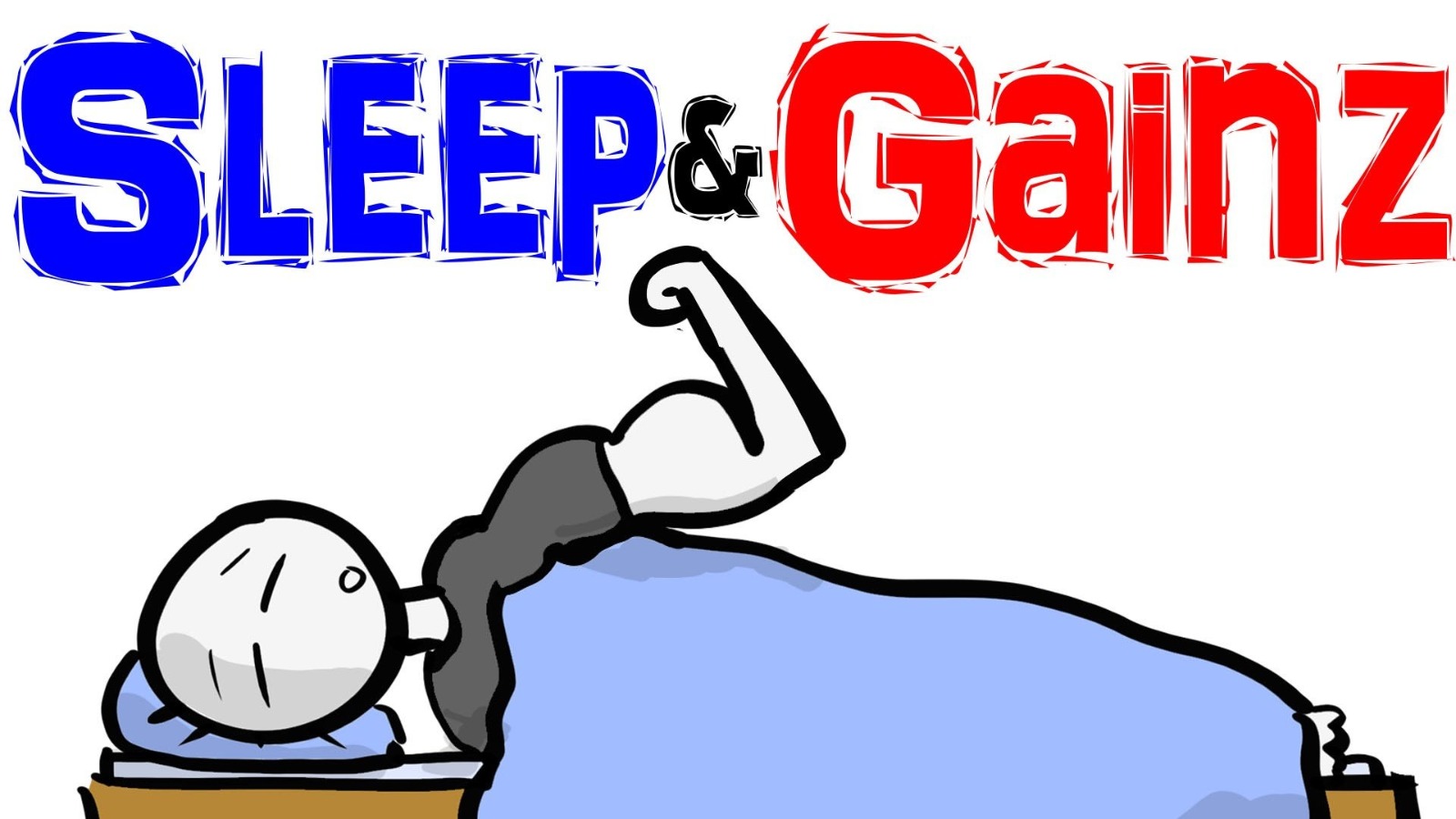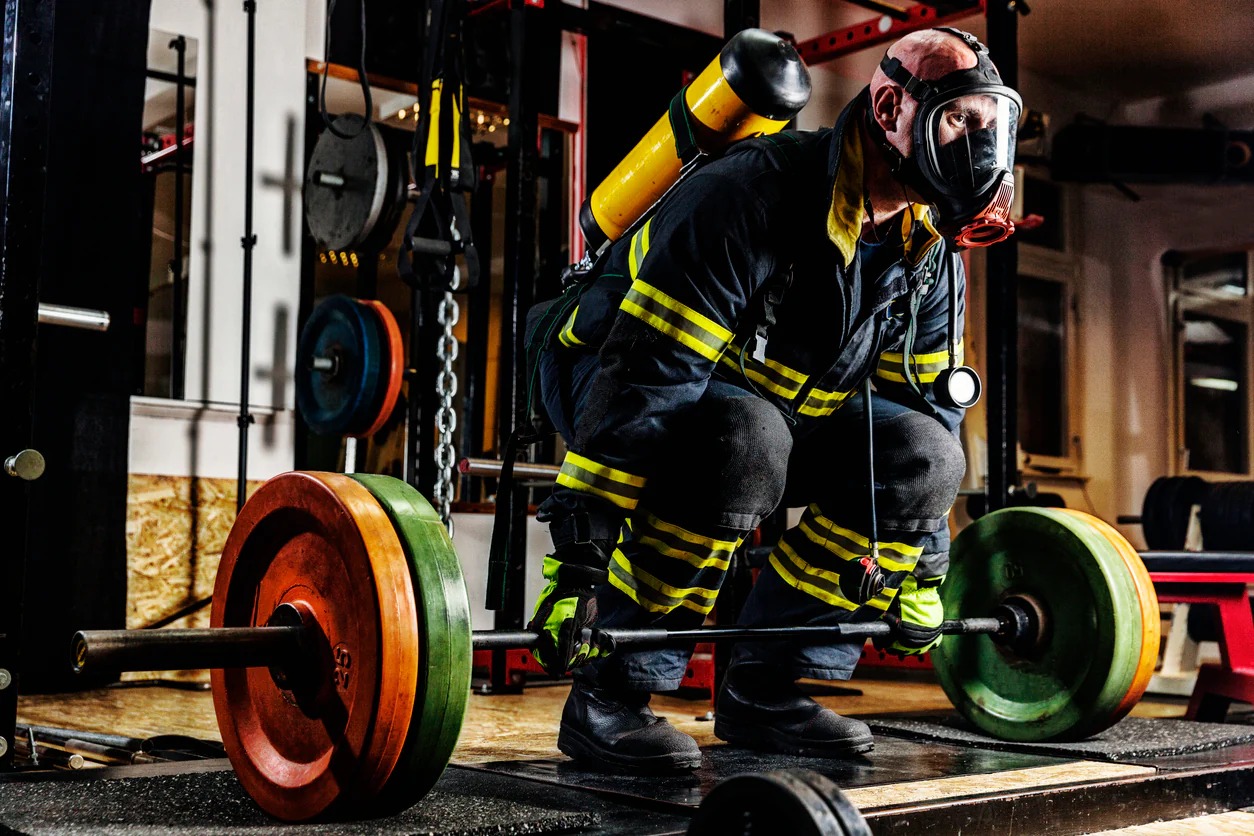
Sleep Fitness Connection* – Why your muscles grow more in bed than in the gym.
“Discover the hidden power of sleep in building stronger, bigger muscles as science reveals that workouts alone aren’t enough. Learn how deep rest, hormonal balance, and overnight recovery make your muscles grow faster, improve performance, and enhance fitness results, proving that the time you spend in bed is as crucial—if not more—than the hours you spend in the gym.”
💪 Fitness Guru
45 min read · 19, Sep 2025

Introduction
Most people associate muscle growth with lifting weights, intense workouts, and strict training schedules. However, the true secret to building muscle lies not just in the gym but in the bedroom. While exercise provides the stimulus for growth, it is during sleep that the body repairs, rebuilds, and strengthens itself. This fascinating relationship between sleep and fitness highlights why athletes, bodybuilders, and fitness enthusiasts prioritize quality rest as much as training and nutrition.
In this article, we’ll explore the science behind the sleep-fitness connection, how sleep impacts muscle growth, what happens inside the body during deep rest, and why your muscles grow more in bed than they do in the gym.
The Science of Muscle Growth
Before understanding how sleep affects muscles, it’s important to first look at how muscles grow. The process is known as muscle hypertrophy, which occurs when muscle fibers experience tiny tears from resistance training. During recovery, the body repairs these tears, making the muscles stronger and larger.
Key factors that influence muscle growth include:
- Progressive overload: Gradually increasing workout intensity.
- Proper nutrition: Adequate protein and calories.
- Hormonal balance: Testosterone, growth hormone, and IGF-1 levels.
- Recovery and sleep: The body’s repair phase.
Exercise may be the spark, but recovery—especially sleep—is the fuel that transforms effort into results.
What Happens to Muscles During Sleep?
When you drift into deep sleep, your body enters a highly active repair mode. Here’s what happens to your muscles during different sleep cycles:
- Non-REM Deep Sleep (Slow-Wave Sleep):
- This is the most restorative phase.
- Growth hormone is released in large amounts.
- Muscle tissue repair and protein synthesis peak.
- Energy stores (glycogen) are replenished.
- REM Sleep (Dream Sleep):
- Brain activity increases, helping motor skill learning.
- Neural recovery ensures better coordination and performance.
Together, these cycles ensure both the body and brain recover optimally for future workouts. Without them, your fitness progress is limited, no matter how hard you train.
Sleep and Hormones: The Growth Connection
Hormones play a central role in muscle development, and sleep directly regulates their release:
- Growth Hormone (GH): Secreted during deep sleep, GH stimulates tissue growth and repair, making it essential for muscle recovery.
- Testosterone: Levels peak during sleep and decline with poor rest. This hormone supports muscle protein synthesis and strength gains.
- Cortisol (Stress Hormone): Chronic sleep deprivation raises cortisol, which breaks down muscle tissue and increases fat storage.
- Insulin Sensitivity: Better sleep improves nutrient absorption and muscle glycogen storage.
Without proper sleep, hormonal imbalances can sabotage your training efforts.
Why Muscles Grow More in Bed Than in the Gym
- The Gym Provides Stress, Sleep Provides Recovery
- Training causes micro-tears in muscle fibers.
- Growth only occurs when the body repairs those tears, primarily during sleep.
- Protein Synthesis is Highest During Sleep
- Studies show that muscle protein synthesis (the process of building new muscle proteins) is most active while sleeping.
- Energy Restoration
- Muscles replenish glycogen during sleep, preparing them for the next workout.
- Brain-Muscle Connection
- Sleep improves neuromuscular coordination, making you stronger and more efficient in movements.
Simply put: The gym breaks you down, but sleep builds you up.
The Consequences of Poor Sleep on Fitness
Skipping sleep doesn’t just make you tired—it hinders muscle growth and overall fitness progress. Some negative effects include:
- Reduced strength and endurance – workouts feel harder with less sleep.
- Lower testosterone and GH levels – slowing down muscle repair.
- Increased cortisol – breaking down muscle instead of building it.
- Impaired recovery – higher risk of injury and soreness.
- Poor motivation and focus – making consistent training harder.
Even if you eat well and train hard, poor sleep can undo your efforts.
How Much Sleep Do You Need for Muscle Growth?
Most adults need 7–9 hours of quality sleep per night, but athletes and those engaging in heavy training may require closer to 9–10 hours. Short naps (20–30 minutes) can also aid recovery when nighttime sleep is insufficient.
Tips to Improve Sleep for Better Muscle Growth
- Maintain a Consistent Sleep Schedule – Go to bed and wake up at the same time daily.
- Create a Sleep-Friendly Environment – Dark, cool, and quiet rooms enhance deep sleep.
- Avoid Blue Light Before Bed – Reduce phone or laptop use at night.
- Prioritize Post-Workout Nutrition – Protein and carbs help recovery before bedtime.
- Limit Caffeine and Alcohol – Both disrupt sleep cycles.
- Practice Relaxation Techniques – Meditation, deep breathing, or reading before bed.
- Invest in Quality Bedding – Comfortable mattresses and pillows support restful sleep.
Real-Life Examples: Athletes Who Prioritize Sleep
- LeBron James (NBA Star): Sleeps 12 hours a night to maintain peak performance.
- Roger Federer (Tennis Legend): Known to sleep up to 10–12 hours during tournaments.
- Tom Brady (NFL Star): Advocates for consistent sleep schedules to optimize recovery.
These examples highlight that elite athletes treat sleep as part of training.
When most people think of muscle building, they imagine hours of heavy lifting in the gym, sweating through intense training sessions, and following strict workout routines, but what often gets overlooked is that the actual process of building muscle happens outside the gym, particularly while you are asleep, and this is why many fitness experts emphasize that muscles are not truly made in the gym but in bed; exercise provides the necessary stress that breaks down muscle fibers, but the body only repairs, rebuilds, and strengthens those fibers during recovery, and the deepest and most effective recovery happens during sleep, which makes sleep the unsung hero of muscle growth and overall fitness, because during deep non-REM slow-wave sleep, the body releases growth hormone in large amounts, which stimulates tissue repair, protein synthesis, and muscle recovery, while at the same time replenishing glycogen stores that fuel future workouts, and during REM sleep, the brain consolidates motor skills, enhances the neuromuscular connection, and ensures you are sharper and more coordinated in your training the next day, meaning that sleep is not just passive rest but an active, dynamic process where the body works hard to heal itself, balance hormones, and prepare for the next challenge; in fact, several key hormones directly involved in muscle development are governed by sleep, including testosterone, which peaks during sleep and plays a vital role in muscle repair and growth, growth hormone, which is released in bursts during deep sleep, and insulin-like growth factor (IGF-1), which promotes tissue growth, while poor or insufficient sleep elevates cortisol, the stress hormone, which actually breaks down muscle tissue and promotes fat storage, so even if you train harder and eat cleaner, without sleep you may be undoing much of your progress, and this explains why elite athletes such as LeBron James, Roger Federer, and Tom Brady treat sleep as an essential part of training, often sleeping 10–12 hours a day to optimize their performance and recovery; the consequences of neglecting sleep are significant for fitness enthusiasts and athletes alike, as inadequate rest reduces strength and endurance, lowers testosterone and growth hormone levels, increases risk of injuries due to poor recovery, and diminishes motivation and focus, making consistent training harder, and studies have shown that sleep-deprived individuals experience slower protein synthesis rates, less efficient glycogen storage, and impaired coordination, all of which slow down progress in the gym, while on the other hand, quality sleep accelerates protein synthesis, restores energy, balances hormones, and enhances the brain-muscle connection, ultimately making you stronger, leaner, and better prepared to handle progressive overload in training, and while the gym is where you stimulate muscles, sleep is where you actually grow them, which is why experts recommend adults aiming for muscle growth get at least 7–9 hours of sleep each night, and athletes often require 9–10 hours, with short naps of 20–30 minutes also proving beneficial when full nighttime sleep isn’t possible, and improving sleep quality requires conscious effort, such as sticking to a consistent bedtime and wake-up schedule, creating a dark, quiet, and cool sleeping environment, reducing exposure to blue light from phones and laptops before bed, fueling recovery with proper post-workout nutrition that includes protein and carbohydrates, limiting caffeine and alcohol which disrupt sleep cycles, and practicing relaxation techniques like deep breathing, meditation, or reading, all of which prepare the mind and body for restorative rest; interestingly, research has revealed that muscle protein synthesis peaks while we are asleep, meaning that this period is biologically designed for recovery and growth, which reinforces the truth that the hours spent sleeping may be more important for fitness gains than the hours spent training, and this is why people who sleep poorly often notice slower progress, more frequent plateaus, and greater fatigue despite putting in more effort at the gym, proving that recovery is not optional but essential, and if you ignore it, your body cannot perform at its best, whereas when you prioritize sleep, you amplify the benefits of every rep, every set, and every meal; in summary, the connection between sleep and muscle growth is undeniable, with sleep acting as the foundation upon which exercise and nutrition can build, because while the gym breaks you down, it is in bed where your body builds you back stronger, so if you want bigger, stronger muscles and better performance, you need to think beyond barbells and protein shakes and treat quality sleep as your most powerful training tool.
When most people think about building muscles, they picture long hours in the gym lifting heavy weights, following intense training routines, and sticking to strict nutrition plans, but the surprising truth is that muscles do not actually grow during workouts—they grow while you are asleep, because training simply provides the stress and stimulation needed to break down muscle fibers, while real growth happens later when the body enters its recovery phase, especially during sleep, making rest one of the most underrated yet crucial aspects of fitness, and this is why many coaches and sports scientists often emphasize that the gym breaks you down but sleep builds you up, since without adequate sleep, even the hardest workouts and the cleanest diets cannot deliver the desired results; muscle growth, scientifically known as hypertrophy, occurs when muscle fibers sustain tiny tears during resistance training and then repair themselves stronger and larger during recovery, and the body relies on sleep for this repair because during the deep stages of non-REM slow-wave sleep, the pituitary gland releases growth hormone in large amounts, which fuels tissue repair, protein synthesis, and recovery, while glycogen—the stored form of glucose that muscles use as energy—is also replenished during this stage, ensuring your body is re-energized for the next workout, and during REM sleep, which is also called dream sleep, the brain consolidates motor learning, strengthens the brain-muscle connection, and enhances neuromuscular coordination, which means sleep improves not only physical recovery but also technical performance in exercises like weightlifting, sprinting, or sports that require precision, agility, and coordination, and the hormonal balance regulated by sleep is perhaps the most important factor for muscle development because testosterone, a hormone critical for strength, protein synthesis, and overall fitness, peaks during sleep and is severely reduced when sleep is inadequate, while growth hormone, as mentioned, is secreted primarily during deep sleep and plays a central role in recovery and muscle building, and insulin sensitivity also improves during quality sleep, allowing the body to use nutrients more efficiently for muscle repair and glycogen storage, while at the same time poor or disrupted sleep elevates cortisol, the stress hormone that breaks down muscle tissue, increases fat storage, and interferes with recovery, meaning that a lack of sleep can directly sabotage muscle growth no matter how much effort you put into training, which is why elite athletes treat sleep as seriously as training or nutrition, with basketball superstar LeBron James reportedly sleeping 12 hours a night to maintain peak recovery, tennis legend Roger Federer often sleeping 10 to 12 hours during tournaments, and NFL quarterback Tom Brady sticking to consistent sleep schedules as part of his longevity routine, and these examples prove that sleep is not a luxury but an essential performance enhancer, and the consequences of neglecting sleep are well-documented, ranging from reduced strength and endurance, slower muscle repair, hormonal imbalances, higher risk of injuries, lower motivation, and impaired focus, all of which combine to slow progress and make training less effective, whereas consistently prioritizing sleep accelerates protein synthesis, balances anabolic hormones, sharpens mental clarity, restores energy, and enhances your ability to push harder in the gym the next day, making it clear why muscles actually grow more in bed than in the gym; the question then arises—how much sleep is needed for optimal muscle growth?—and most experts recommend that adults aim for 7 to 9 hours of quality sleep each night, while athletes or individuals engaging in heavy training may require closer to 9 or even 10 hours, with short daytime naps of 20 to 30 minutes also proving beneficial for recovery if nighttime sleep is insufficient, and improving sleep quality can be achieved through simple strategies like maintaining a consistent sleep schedule by going to bed and waking up at the same time daily, creating a dark, cool, and quiet sleep environment that promotes deep rest, reducing exposure to blue light from phones, laptops, and TVs before bed, consuming post-workout nutrition with a mix of protein and carbohydrates to fuel muscle recovery overnight, limiting caffeine and alcohol intake which can disrupt sleep cycles, and adopting relaxation practices such as meditation, deep breathing, or reading before bed to calm the mind, and investing in comfortable bedding and pillows also enhances sleep quality, and scientific studies back these practices by showing that muscle protein synthesis peaks during sleep, meaning the body is biologically designed to grow and repair muscles most effectively when at rest, which reinforces the idea that sleep should be treated as the third pillar of fitness alongside training and nutrition, and when sleep is consistently neglected, people often hit frustrating plateaus where they see no progress despite harder workouts or stricter diets, simply because their bodies are not given the chance to recover and rebuild, whereas when sleep is prioritized, every set, every rep, and every meal works more efficiently toward the goal of strength and growth, making it one of the most powerful and cost-free tools available to athletes and fitness enthusiasts alike; ultimately, the connection between sleep and muscle growth is undeniable, with sleep serving as the foundation for recovery, hormonal balance, energy restoration, and mental sharpness, and the bottom line is simple—the gym may break down your body, but sleep rebuilds it stronger, so if you want to maximize your fitness results, you need to stop thinking of sleep as downtime and start viewing it as active recovery, because your muscles truly grow more in bed than they ever do in the gym, and by respecting this balance between stress and rest, you ensure steady progress, stronger muscles, and better overall health.
Conclusion
The connection between sleep and fitness is undeniable. While workouts stimulate muscle breakdown, true growth occurs during deep rest. Sleep enhances protein synthesis, regulates hormones like testosterone and growth hormone, restores energy, and sharpens the brain-muscle connection. Without sufficient sleep, progress slows, recovery suffers, and performance declines.
In essence, muscles are made in bed, not in the gym. Training, nutrition, and sleep form the ultimate trio for fitness success. By prioritizing quality rest, you maximize the results of every rep, every set, and every workout.
Q&A Section
Q1 :- Why is sleep more important than exercise for muscle growth?
Ans :- Exercise provides the stimulus for growth, but muscle repair and protein synthesis happen mainly during sleep. Without adequate rest, the body cannot rebuild muscles effectively.
Q2 :- How many hours of sleep should I get to maximize muscle growth?
Ans :- Most adults need 7–9 hours per night, while athletes and heavy lifters may benefit from 9–10 hours for optimal recovery.
Q3 :- Does poor sleep really reduce muscle gains?
Ans :- Yes. Poor sleep lowers testosterone and growth hormone, raises cortisol, and reduces protein synthesis, directly hindering muscle development.
Q4 :- Can naps help with fitness recovery?
Ans :- Short naps (20–30 minutes) can boost recovery, improve alertness, and provide additional rest, especially if nighttime sleep is inadequate.
Q5 :- What is the best time to sleep for muscle growth?
Ans :- The best approach is consistency—sleeping and waking at the same time daily. Growth hormone release peaks during deep sleep, which occurs earlier in the night.
Similar Articles
Find more relatable content in similar Articles

Viking Fitness: Old Norse Training Methods for Modern Athlet..
Discover the ancient training .. Read More

Fitness Meets Fashion – Wearable Gear That Looks Like Street..
Wearable gear is transforming .. Read More

Firefighter Fitness – Training to Carry 50 Kg of Gear...
Firefighter fitness is a speci.. Read More

How Nutrition Impacts Hair and Nail Health..
Healthy hair and nails reflec.. Read More
© 2024 Copyrights by rFitness. All Rights Reserved.